Stacey Abrams' resounding win in Georgia vaults her into national spotlight
Abrams would be the nation's first African-American female governor.
Addressing her supporters Tuesday night, after making history as the first African-American and the first woman to be a major party's nominee for governor of Georgia, Stacey Abrams paused for a moment to reflect on her life's journey.
"I am the child of a shipyard worker and a college librarian, who were called to become United Methodist ministers. A proud daughter of the Deep South," Abrams, the former Minority Leader of the Georgia State House, told a crowd of supporters gathered at a downtown Atlanta hotel.
"I grew up the second of six children in a family where we struggled to stay above the poverty line, but we never struggled to know what was right or to believe in our possibilities...Hard work is in my bones," she said.
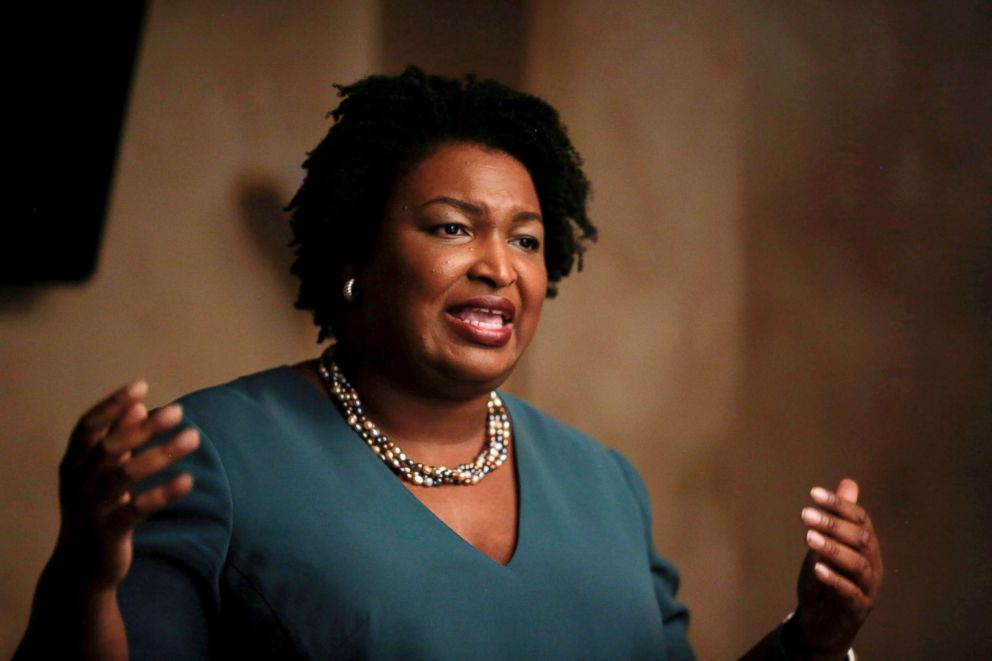
One of six children whose parents moved the family to Georgia from Mississippi during her childhood, Abrams' victory drew a resounding reaction from Democrats across the country and is sure to draw more national attention as Georgia voters are presented with a black woman as a choice for governor for the first time in the state's history.
"Democrats are uniting behind Stacey Abrams, whose plan to fully fund public education and expand Medicaid will carry her to victory and make her America’s first African-American woman governor," Democratic National Committee (DNC) Chairman Tom Perez said in a statement late Tuesday night.
Tuesday's victory marked another successful chapter in Abrams already accomplished career in Georgia politics.
A 44-year-old graduate of Yale Law School, who has run a small business and has written a series of romance novels under her nom de plume Selena Montgomery, Abrams rose through the political ranks in the state, eventually becoming minority leader in the Georgia House of Representatives and launching an effort along the way called the New Georgia Project, with a goal of registering tens of thousands of new voters that could make the difference between victory and defeat for Democrats in a state with six million voters.
Abrams handily defeated her only rival in Tuesday's primary – former State Representative Stacey Evans – scoring more than 75 percent of the vote statewide and capturing all but six of Georgia's 159 counties, including rural areas across the state where Democrats have struggled to make inroads in their ongoing effort to turn Georgia blue.
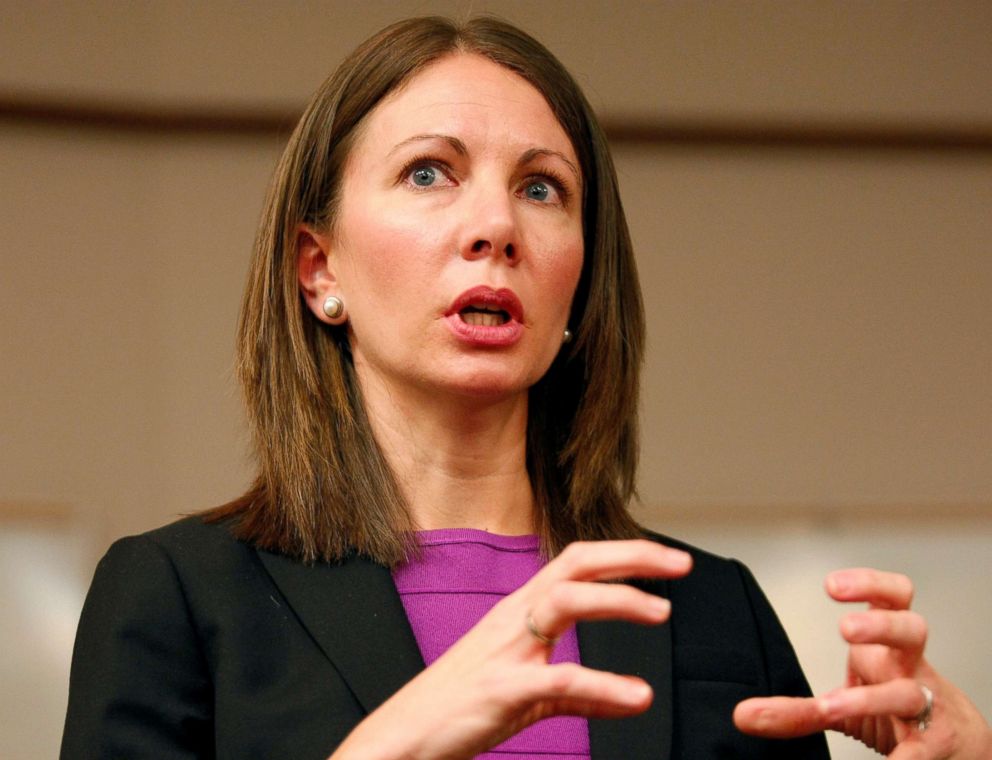
Evans encouraged her supporters to unite behind Abrams, who will face either Georgia Lt. Governor Casey Cagle or Secretary of State Brian Kemp. Cagle and Kemp were the top two vote-getters in Tuesday's Republican primary and will face off again on July 24 in a runoff election to decide which one will take on Abrams in a state that has not elected a Democrat to statewide office in over a decade.
Cagle has been the state's second-ranking official under GOP Governor Nathan Deal since 2007, and before that was a state senator for over a decade. In a statement released Wednesday, Cagle blasted what he calls Kemp's "incompetent management" as secretary of state, and reiterated his conservative credentials ahead of the July runoff.
"I want to be your candidate if you share my vision for cutting taxes, training our workforce, creating high-paying jobs, fighting illegal immigration, protecting gun rights, promoting a culture that values life and defending our Christian values," Cagle said in an appeal to Georgia Republicans.
Endorsed by former Democratic presidential primary rivals Hillary Clinton and Bernie Sanders, Abrams now must navigate a traditionally conservative state that has not elected a Democratic governor since 1998, when Roy Barnes defeated Republican businessman Guy Millner.
Donald Trump won Georgia by five points in the 2016 presidential election, giving some credence to Democratic hopes of victory in the state. Abrams success or failure in the fall will provide yet another benchmark of how far the state's Republican-leaning political climate has shifted.
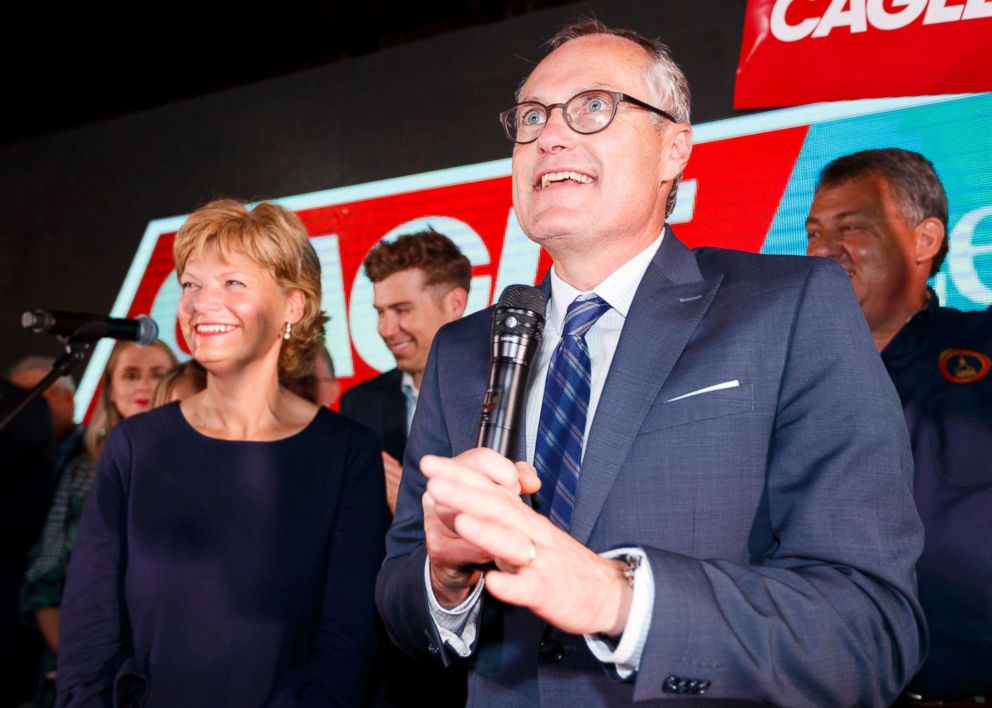
Abrams embraces some of Sanders more liberal policies on public education, there was no mention of single-payer health care or a "Medicare for All" type of system in her victory speech Tuesday night. Instead, Abrams appeared to be trying to stake out a middle ground, saying she wants to be the state's "Public Education Governor," and encourage more businesses to invest in the state, which has seen metropolitan areas like Atlanta enjoy an economic boom in recent years.
"We can invite corporations to our communities, and at the same time, invest in the thousands of small businesses that keep our neighborhoods alive," Abrams said, "I will be a governor who brings more than jobs to Georgia – together, we can build career pipelines in renewable energy, spur creativity through a growing entertainment industry, and increase the strength of our trade unions to grow an economy that lifts every Georgian."
National Republicans already are seeking to portray Abrams as a far-left politician that is out of step with the state's more right-leaning electorate.
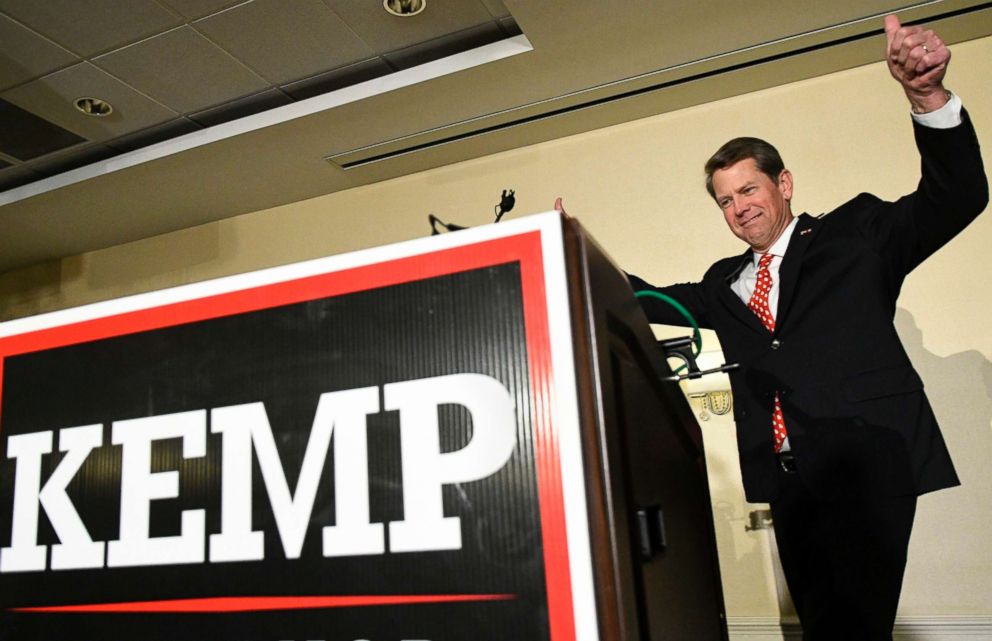
"With Stacey Abrams, Democrats have chosen a far-left radical committed to imposing an extreme agenda on Georgians," Republican Governors' Association (RGA) Communications Director Jon Thompson said in a statement Tuesday night. The RGA also released a digital video Tuesday night accusing Abrams of "using Georgia as a stepping stone" for her higher political aspirations.
Abrams also slammed the state's Republican leaders, saying they have failed many of Georgia's residents by blocking a Medicaid expansion in the state.
"Republican leaders have failed these folks. By being too mean and too cheap to expand Medicaid, by jeopardizing our rural hospitals for political gain, they’ve put millions of Georgia families at risk. We can do better than that," Abrams said.
Regardless of Abrams' political chances this November, she undoubtedly gained a bevy of prominent Democratic endorsers and allies throughout the primary. In addition to Clinton and Sanders, Abrams also has the backing of two prominent African-American Democratic senators -- Cory Booker of New Jersey and Kamala Harris of California, both of whom congratulated her on her victory last night on social media.
American voters have only elected an African-American as governor twice in the nation's history -- Douglas Wilder of Virginia in 1989, and Deval Patrick of Massachusetts in 2006 -- but Abrams strong showing Tuesday provided more encouragement to groups aiming to elect more to public office this cycle.
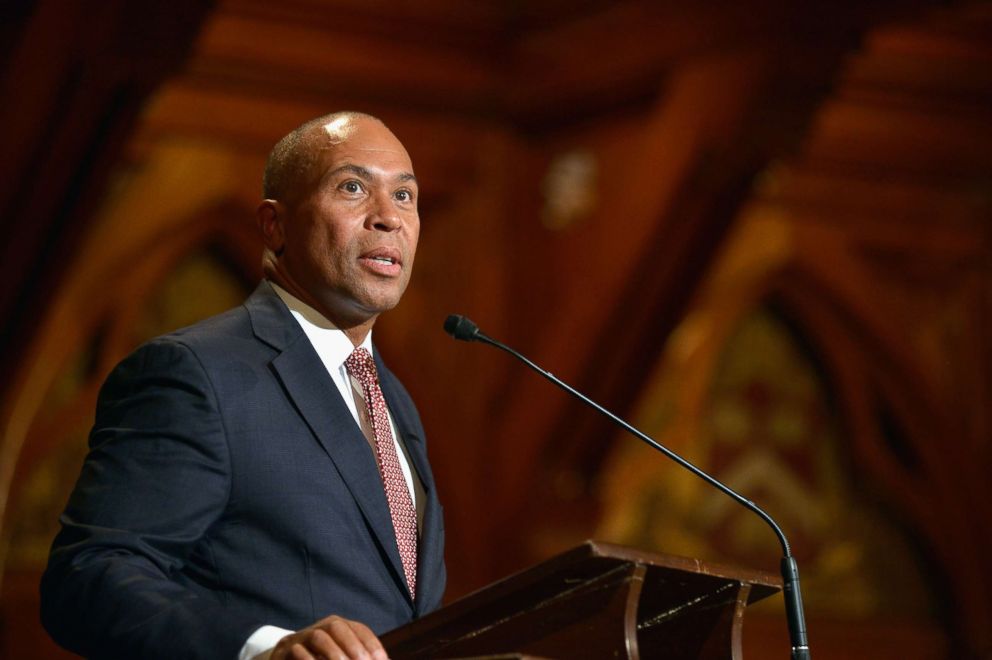
"Stacey Abrams won this election because she reached out and engaged communities of color, particularly Black voters, on the issues that they care about, including the core priorities of economic and educational fairness and racial justice," Adrianne Shropshire, the Executive Director of BlackPAC, an outside group aiming to elect more African-Americans to public office, said in a statement Tuesday night.
"This historic victory is a model for candidates all across the country for how to engage and excite Black voters - her campaign prioritized grassroots community outreach and engagement in communities of color, talking to tens of thousands of voters about the issues at stake," Shropshire added.
For her part, Abrams sounded ready Tuesday night to move on to a general election against either Cagle or Kemp.
"Tomorrow we hit the phones, the doors, and the streets to reach every Georgian with our message," Abrams told the throngs of her supporters gathered Tuesday night, "This is our moment, and this is our chance to lift up Georgia! And if we fight, if we push, if we work, we will win!"




